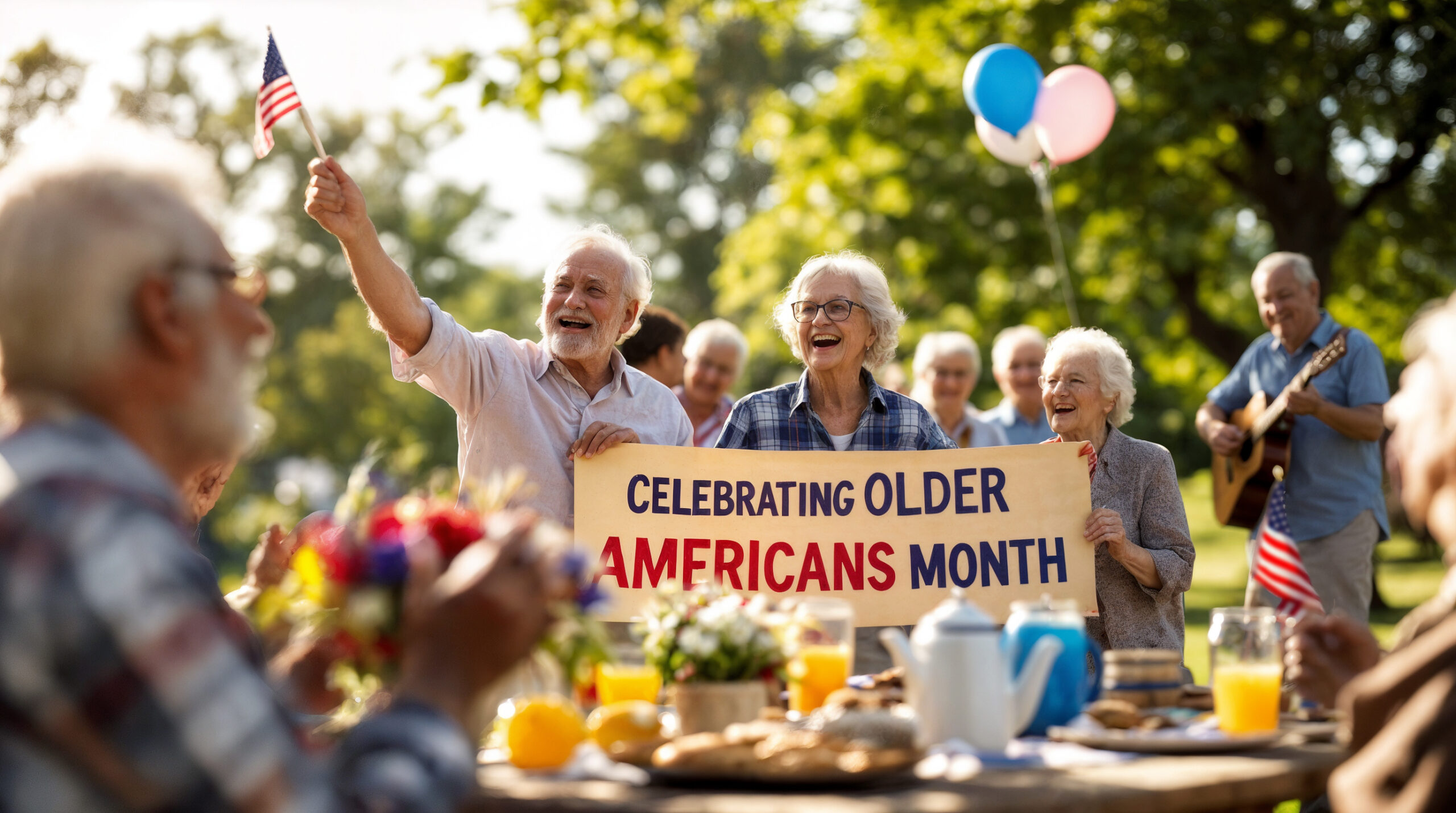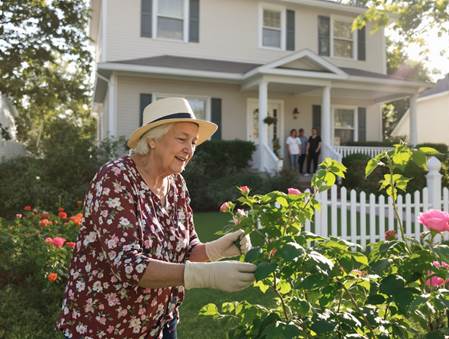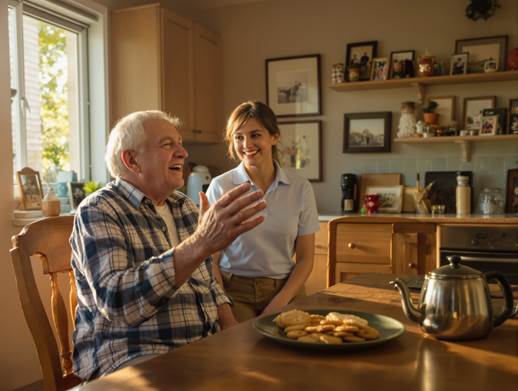Celebrating Older Americans Month: Supporting Independence at Home

Author: Home Helpers Home Care
Every May, we join the nation in celebrating Older Americans Month—a time to honor the immense contributions, diverse experiences, and remarkable resilience of our senior community. This year's recognition feels particularly meaningful as we reflect on the increasing desire among older adults to age comfortably and safely in their own homes, surrounded by the memories and comforts they've built over decades.
At Home Helpers Home Care of Drexel Hill, we've witnessed firsthand how crucial independence is to the emotional and physical wellbeing of seniors. The ability to maintain control over one's daily life—deciding when to eat, sleep, or welcome visitors—forms the foundation of dignity as we age. Yet for many older adults and their families, preserving this independence while ensuring safety can seem like an impossible balancing act.
The Changing Landscape of Aging
Consider an 85-year-old mom who absolutely refuses to leave her cherished two-story home, despite her kids' sleepless nights worrying about those steep stairs and her increasingly spotty medication routine. She loves her garden, her neighbors, the way sunlight hits her kitchen window at breakfast. The house holds fifty years of Christmas mornings and birthday dinners.
Meanwhile, her daughter checks her phone twenty times during work meetings, half-expecting that dreaded emergency call.
It's a story playing out in homes throughout Delaware County. Loving families caught in an impossible spot—torn between honoring Mom or Dad's fierce independence and the gut-wrenching fear of "what if." These kitchen table conversations can quickly turn into tearful standoffs that leave everyone feeling misunderstood.
But here's what we've learned after years in hundreds of homes: it doesn't have to be all-or-nothing. The right help at the right time can mean Dad keeps his dignity and address, while his kids finally get a decent night's sleep. Finding this sweet spot—where independence meets safety—that's the magic formula we're after with every family we serve.

Building Blocks of Independence
True independence for older adults rests on several crucial foundations:
Safety at Home: Simple environmental modifications can dramatically reduce fall risks and enhance mobility. Sometimes it's as straightforward as removing throw rugs or improving lighting. Other situations might call for grab bars in bathrooms or rearranging furniture to create clear pathways.
Personal Care Support: Assistance with activities like bathing, dressing, and grooming helps seniors maintain dignity and personal standards they've valued throughout their lives. Many seniors we serve express how important maintaining their appearance is to their sense of self-respect and dignity.
Nutrition and Medication Management: Proper nourishment and medication adherence form the cornerstones of health maintenance. When these basics falter, overall wellbeing quickly declines.
Transportation Access: The ability to attend medical appointments, faith services, or simply meet friends for coffee remains vital for both physical and emotional health.
Social Connection: Perhaps most overlooked, yet incredibly important, is maintaining meaningful human connections. Isolation can rapidly accelerate cognitive and physical decline.
Customized Care: The Home Helpers Approach
What makes our approach distinctive is understanding that no two seniors have identical needs or preferences. Our experience shows that each situation is unique, which is why our care begins with a thorough assessment and conversation, not just with the senior but with their family members as well.
We often find that families initially hesitate to seek help, thinking it means giving up independence. In reality, many discover that appropriate support actually enhances independence by providing exactly the right level of assistance while preserving autonomy in all other areas.
This transformation from reluctance to relief occurs frequently as families discover how customized care preserves rather than diminishes independence. Our caregivers might provide assistance for just a few hours weekly or offer round-the-clock support, depending entirely on individual needs.
The Caregiver Difference
The heart of effective home care lies not in services but in relationships. Our caregivers don't merely complete tasks; they build genuine connections that enrich lives on both sides.
Professional caregivers bring both skills and compassion to each home. The best caregivers understand they're not just entering someone's house, they're becoming part of their life story. The photos on the walls, the books on the shelves, they're all chapters of who this person is.
When our caregivers know Mr. Wilson prefers his coffee black with exactly two ice cubes, or that Mrs. Chen won't take her sweater off even in July, that's when help becomes something more. Mundane tasks like cooking dinner or organizing medicine become chances to honor the person behind the need. Our folks don't just complete checklists - they protect decades of habits and preferences that make each client uniquely themselves.

Beyond Physical Care: Emotional Wellbeing
While physical safety naturally concerns many families, emotional and cognitive wellbeing prove equally important to quality of life. Companionship care—simply having someone to talk with, play cards with, or accompany on neighborhood walks—often yields profound benefits.
Research consistently shows that regular social interaction helps maintain cognitive function and reduces depression risk among older adults. Our caregivers engage seniors in conversation, reminiscence, and activities that stimulate both mind and spirit.
We've seen remarkable changes in seniors after introducing companionship care just a few times weekly. Many who had become withdrawn following the loss of a spouse or friends begin to engage again, telling stories and finding renewed joy in social interaction.
Technology and Independence
While human connection remains irreplaceable, technology increasingly complements our care approach. Medication reminders, emergency response systems, and virtual check-ins provide additional layers of security that many seniors find reassuring rather than intrusive.
Some seniors initially resist technological assistance, but many come to appreciate the independence and security these tools provide. Emergency response pendants, for example, offer reassurance to both seniors and their distant family members.
Family Caregivers: Partners in Support
We recognize that family members often provide significant care themselves. Rather than replacing this vital support, our services complement family efforts, providing respite and reinforcement.
Family caregivers frequently experience exhaustion and stress that can affect their own health. We've seen how professional support can help family members recognize that taking care of themselves isn't selfish—it's necessary for sustainable caregiving.
This partnership approach often strengthens family relationships by relieving the pressure that can transform loving connections into stressful caretaking dynamics.
Making the Decision: When to Seek Support
Determining the right time to introduce home care often challenges families. While there's no universal answer, certain signals typically indicate when support would benefit both seniors and their loved ones:
- Noticeable changes in personal appearance or home cleanliness
- Difficulty managing medications correctly
- Declining nutrition or weight loss
- Increased fall risk or recent falls
- Growing social isolation
- Caregiver stress affecting family relationships
- Concerns about driving safety
The key lies in viewing home care not as surrendering independence but as a proactive step to preserve it. With appropriate support, many seniors maintain their home lives for years longer than would otherwise be possible.
As we celebrate Older Americans Month this May, we honor the independence, wisdom, and resilience of our senior community. Their determination to maintain autonomy deserves not just respect but active support—the kind that empowers rather than diminishes, that enhances life rather than merely sustaining it.
For every older American who wishes to remain in the comfort of familiar surroundings, we remain committed to making that wish a reality, one home and one relationship at a time.
